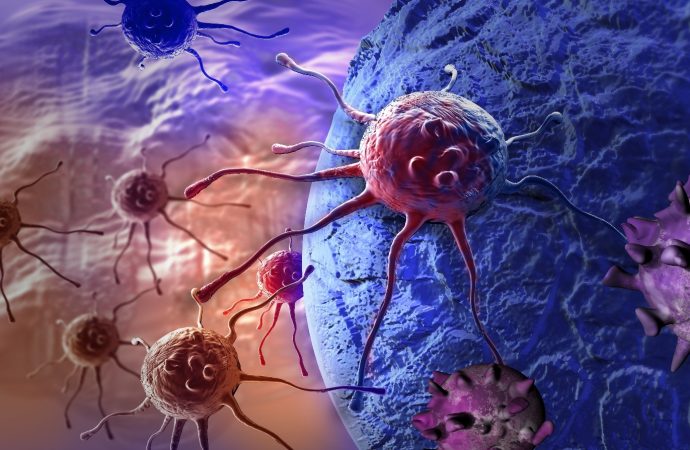As we step into 2025, the landscape of cancer treatment continues to evolve at a remarkable pace, driven by groundbreaking innovations and technological advancements. The fight against cancer has always been a formidable challenge, but recent developments offer renewed hope and promise. This article delves into the latest cancer treatment innovations, offering an informative overview
As we step into 2025, the landscape of cancer treatment continues to evolve at a remarkable pace, driven by groundbreaking innovations and technological advancements. The fight against cancer has always been a formidable challenge, but recent developments offer renewed hope and promise. This article delves into the latest cancer treatment innovations, offering an informative overview of what’s new in 2025.
Precision Medicine: Tailoring Treatment to the Individual
One of the most significant advancements in cancer treatment is the continued refinement of precision medicine. This approach tailors treatment to the individual characteristics of each patient’s cancer, considering genetic, environmental, and lifestyle factors. In 2025, precision medicine has become more accessible and effective, thanks to advancements in genomic sequencing technologies and bioinformatics.
Genomic Profiling and Targeted Therapies
Genomic profiling has become a routine part of cancer diagnosis, allowing oncologists to identify specific genetic mutations driving a patient’s cancer. This information is crucial for selecting targeted therapies that can inhibit the growth of cancer cells without affecting healthy cells. In 2025, new targeted therapies are emerging, offering more options for patients with previously untreatable cancers.
Liquid Biopsies
Liquid biopsies, which analyze circulating tumor DNA (ctDNA) from a simple blood sample, have gained traction as a non-invasive method to monitor cancer progression and treatment response. In 2025, these tests are more sensitive and accurate, enabling earlier detection of relapse and real-time treatment adjustments.
Immunotherapy: Harnessing the Power of the Immune System
Immunotherapy continues to revolutionize cancer treatment by harnessing the body’s immune system to recognize and attack cancer cells. In 2025, several new immunotherapeutic approaches have shown promise in clinical trials.
Checkpoint Inhibitors
Checkpoint inhibitors, which block proteins that prevent the immune system from attacking cancer cells, have been successful in treating various cancers. Newer checkpoint inhibitors with improved efficacy and reduced side effects are being developed, offering hope to patients with resistant or recurrent cancers.
CAR-T Cell Therapy
Chimeric Antigen Receptor T-cell (CAR-T) therapy, which involves genetically modifying a patient’s T-cells to target cancer cells, has expanded beyond blood cancers to solid tumors. Innovations in CAR-T cell engineering have improved their persistence and effectiveness, making them a viable option for more cancer types in 2025.

Picture by: Yandex.com
Artificial Intelligence and Machine Learning
The integration of artificial intelligence (AI) and machine learning in oncology has transformed cancer diagnosis, treatment planning, and drug discovery. In 2025, AI-driven tools are more sophisticated, providing oncologists with powerful resources to enhance patient care.
AI in Diagnostics
AI algorithms can analyze medical images, such as MRIs and CT scans, with remarkable accuracy, helping radiologists detect cancer at earlier stages. These tools also assist in differentiating between cancer types and predicting disease progression, enabling more personalized treatment plans.
Drug Discovery and Development
AI is accelerating the drug discovery process by identifying potential therapeutic targets and predicting the efficacy of new compounds. In 2025, several AI-discovered drugs are undergoing clinical trials, offering new hope for hard-to-treat cancers.
Nanotechnology: Delivering Precision Treatment
Nanotechnology has made significant strides in cancer treatment by enabling precise drug delivery to cancer cells while minimizing damage to healthy tissues. In 2025, nanomedicine continues to push the boundaries of what is possible in oncology.
Nanoparticle Drug Delivery
Nanoparticles can encapsulate chemotherapeutic agents, protecting them from degradation and ensuring they reach the tumor site effectively. This targeted delivery reduces side effects and enhances the therapeutic impact. In 2025, new nanoparticle formulations are being tested in clinical trials with promising results.
Theranostics
Theranostic nanoparticles combine therapy and diagnostics, allowing for simultaneous cancer treatment and monitoring. These multifunctional particles can deliver drugs and provide real-time imaging of tumor response, offering a comprehensive approach to cancer management.
Personalized Vaccines
Cancer vaccines have traditionally focused on preventing virus-induced cancers, such as HPV-related cervical cancer. However, recent innovations have led to the development of personalized cancer vaccines that stimulate the immune system to target specific tumor antigens.
Neoantigen Vaccines
Neoantigen vaccines are tailored to the unique mutations present in an individual’s tumor, training the immune system to recognize and attack cancer cells. In 2025, these vaccines are showing promise in early-phase clinical trials, particularly for melanoma and lung cancer.
Advances in Radiotherapy
Radiotherapy remains a cornerstone of cancer treatment, and recent innovations have improved its precision and efficacy. In 2025, advanced radiotherapy techniques are minimizing side effects and enhancing patient outcomes.
Proton Therapy
Proton therapy, which uses protons instead of X-rays to target tumors, offers superior precision in delivering radiation doses. This technique reduces damage to surrounding healthy tissues, making it ideal for treating cancers located near critical organs. In 2025, proton therapy centers are more widespread, providing greater access to this cutting-edge treatment.
FLASH Radiotherapy
FLASH radiotherapy delivers ultra-high doses of radiation in a fraction of a second, significantly reducing treatment time and side effects. This novel approach is being tested in clinical trials, with early results indicating its potential to revolutionize radiotherapy.
Conclusion
The innovations in cancer treatment in 2025 reflect a dynamic and hopeful era in oncology. Precision medicine, immunotherapy, AI, nanotechnology, personalized vaccines, and advanced radiotherapy are transforming the way we approach cancer care. While challenges remain, these advancements bring us closer to a future where cancer is a manageable and, ultimately, curable disease. As research continues to push the boundaries of what is possible, the prospects for cancer patients worldwide are brighter than ever.
















